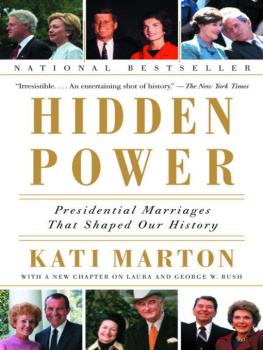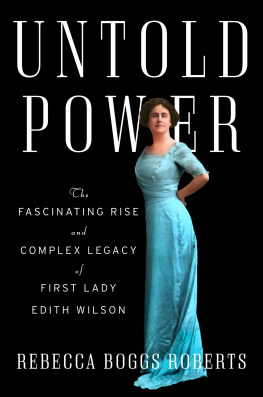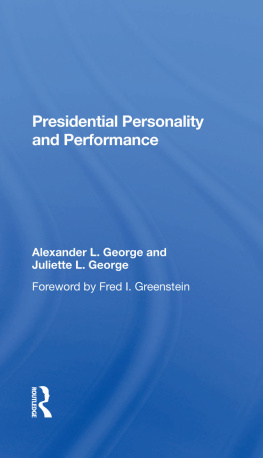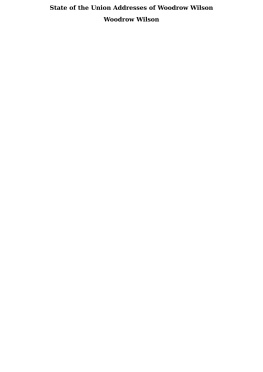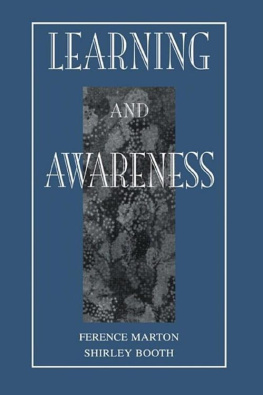A CKNOWLEDGMENTS
Amanda Urban, my friend and the agent for my last four books, started me on this one and offered encouragement and coaxing throughout. I am grateful to Linda Healey, my first editor, who was always available with her usual blend of wisdom, humor and good sense. My editor, Jonathan Segal, proved to be everything an editor should be, and more: encouraging and exacting, intellectually exciting and excited. His tiny, fine script in the margins immeasurably improved the manuscript. My researcher Leslie Powell, a Columbia University scholar in Russian, was there from the beginning and never failed to unearth documents or solve computer crises. I particularly wish to thank historian Benjamin Skinner for his invaluable help in researching and editing the final chapter. Most of all my thanks go to my husband, who sustained me throughout, tirelessly reading and rereading each draft, unflagging in his determination to get the best out of me.
Many others helped me along the way. I wish to thank: Penny Adams, Roger Ailes, Jonathan Alter, Joe Armstrong, Thomas Lud Ashley, Jenny Lyn Bader, Richard Beattie, Paul Begala, Mike Berman, Richard Bernstein, Michael Beschloss, Soma Golden Behr (for title inspiration), Ann Blackman, Robert Boorstin, Benjamin Bradlee, Alan Brinkley, Douglas Brinkley, Tom Brokaw, William Broyles, Jr., Susan Burden, Marian Burros, Gahl Hodges Burt, Horace Busby, Barbara Bush, George Bush, Pat Caddell, Tom Caplan, Lisa Caputo, Margaret Carlson, Robert Caro, Liz Carpenter, Jimmy Carter, Rosalynn Carter, Ellen Chessler, Clark Clifford, Hillary Rodham Clinton, Richard Cohen, Joan Ganz Cooney, John Milton Cooper, Paul Costello, Edward Cox, George Crile, Lloyd Cutler, Margaret Truman Daniel, Michael Deaver, Tom Donilon, Lisa Drew, Kenneth Duberstein, Robin Duke, Barrie Dunsmore, Julie Nixon Eisenhower, Paul Fay, Frances FitzGerald, Marlin Fitzwater, Linda Bird Francke, Craig Fuller, David Gergen, Mary Ellen Glynn, Ruth Goldway, Henry F. Graff, Katharine Graham, Meg Greenfield, Mandy Grunwald, Charles Guggenheim, Richard Haas, Kitty Hart, Jane Stanton Hitchcock, Barbara Howar, Maxine Isaacs, Ellen James, Linda Leroy Janklow, Morton Janklow, James A. Johnson, Lady Bird Johnson, Lynda Bird Johnson, Ann Jordan, Vernon Jordan, David Kennerly, Betty King, Gwendolyn King, Henry Kissinger, Joe Klein, Thomas Knock, Steve Kroft, Raymond Lamontagne, Trude Lash, Ellen Levine, Arthur Stanley Link, David Maraniss, Patricia Mattson, Ann McDaniel, Harry McPherson, Harry Middleton, Walter F. Mondale, Brian Mulrooney, Mila Mulrooney, Bunny Murdoch, Verne Newton, Peggy Noonan, Peter Osnos, Alan J. Pakula, Anna Perez, Peter G. Peterson, Jane Plakias, Jody Powell, Sally Quinn, Donnie Radcliffe, Gerald Rafshoon, Steven Rattner, Nancy Reagan, Richard Reeves, Nancy Reynolds, Frank Rich (for special help with my subtitle), Steven Ricchetti, Dorothy Rodham, Susan Porter Rose, Andrew Rosenthal, Dr. Mitchell Rosenthal, Winthrop Rutherfurd III, Morley Safer, Pierre Salinger, Diane Sawyer, Arthur Schlesinger, Jr., Doug Schoen, Rex Scouten, Donna Shalala, Brooke Shearer, Derek Shearer, Martha Sherrill, Tom Siebert, Liz Smith, Ted Sorensen, Stuart Spencer, Lesley Stahl, George Stephanopoulos, Ann Stock, Strobe Talbott, Helen Thomas, Betty Tilson, Laura DAndrea Tyson, Jack Valenti, William J. Vanden Heuvel, Melanne Verveer, Mike Wallace, Barbara Walters, Margaret Warner, Sheila Weidenfeld, Sherrie Rollins Westin, Maureen White, Kate Roosevelt Whitney, Hal Wingo, Alex Witchel and Bob Woodward.
Books by Kati Marton
THE GREAT ESCAPE
ENEMIES OF THE PEOPLE
HIDDEN POWER
WALLENBERG
AN AMERICAN WOMAN
THE POLK CONSPIRACY
A DEATH IN JERUSALEM
KATI MARTON
Kati Marton is the author of six works of nonfictionincluding Hidden Power, Wallenberg, A Death in Jerusalem, and The Polk Conspiracyand a novel, An American Woman. She has written for The New Yorker, The New York Times, The Atlantic Monthly, Vanity Fair, and The New Republic. A former correspondent for National Public Radio and ABC News, Marton received a George Foster Peabody Award for broadcast journalism. She lives in New York City with her husband.
P HOTO C REDITS
C HAPTER 1

E DITH AND W OODROW W ILSON
F OOLS FOR L OVE
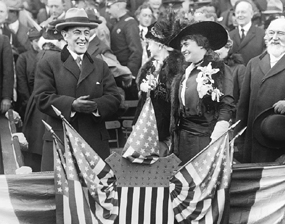
I am absolutely dependent on intimate love for the right and free and most effective use of my powers and I know by experience what it costs my work to do without it.
WOODROW WILSON TO EDITH GALT, August 16, 1915
The dear face opposite me was drawn and lined; and as I sat there watching the dawn break slowly I felt that life would never be the same; that something had broken inside me; and from that hour on I would have to wear a masknot only to the public but to the one I loved best in the world; for he must never know how ill he was, and I must carry on.
EDITH WILSON, My Memoir
ON JANUARY 1, 1900, TWO THOUSAND WASHINGTONIANS BRAVED THE BITTER cold and falling snow and patiently waited for the White House doors to open for the traditional New Years reception. They came by trolley and in elegant carriages to mark the dawn of a new century and with it, as the presence of dozens of diplomats in the queue signaled, Americas emergence as one of the worlds most powerful nations.
The day also marked the hundredth anniversary of the death of George Washington, but America was now an altogether different country than the fledgling republic bequeathed by Virginias First Gentleman. In the past twenty years, seven million Americans had abandoned roots and rural traditions and joined the great urban migration. America fever was sweeping the muddy villages and mining towns of Central and Eastern Europe. An entire Italian family could buy steerage tickets from Naples for as little as $15. Half a million immigrants were expected to arrive in New York that year. The combination of the rich land, a fearless, mobile population and breathtaking new technologyfrom the combine to alternating-current electricitywas allowing America to challenge the rest of the world.
Inside the White House resided a Victorian man and his withdrawn, sickly wife. William and Ida McKinley, good-natured, well liked and unchallenging, had little interest in the new age. While the country had stretched and grown, the White House had not. It had been built as the home of the president of a small republic. The presidential offices were a rabbit warren of jumbled rooms, alongside the First Familys private quarters. A handful of men in formal morning attire, black cutaway coats, gray-and-black-striped trousers and silk ties jockeyed for space in the overcrowded, ill-lit offices. Down the hall in the presidential bedroom, Ida spent much of her time crocheting. She neither had, nor wished for, her own staff or an office of her own. But the American people felt close to their president, who was still accessible to citizens. When he was in residence in the White House, hundreds of them arrived every weekday, expecting to meet him.
It would take another year and an assassins bullet to bring to power the first twentieth-century president, Theodore Roosevelt. Roosevelt was not content for the United States to be the worlds economic giant; his sights were set on global military and diplomatic might. Colorful and ebullient, he and his coolly confident second wife, Edith, were the first modern presidential couple. They and their six children filled the mansion with the boisterousness associated with the family. Roosevelt decreed that henceforth the Executive Mansion would be called the White House, a name he considered less stuffy and more in line with the democratic image he intended to convey. Edith, meanwhile, began to institutionalize the office of first lady. She persuaded Congress to finance the mansions modernization, adding the West Wing andfor the first timeallocating space for the first ladys offices. She hired the first fulltime White House social secretary. Edith ran the White House with the ease and detachment of a born chatelaine, though she treated the public and political aspects of the role with aristocratic disinterest. Nevertheless, in both style and substance, Edith and Theodore Roosevelt virtually initiated the ascendancy of an imperial presidency. Though Edith did not personally make use of the first ladys own pulpit, she helped lay the foundation for her successors. Another Roosevelt would take it into territory Edith never could have imagined.

